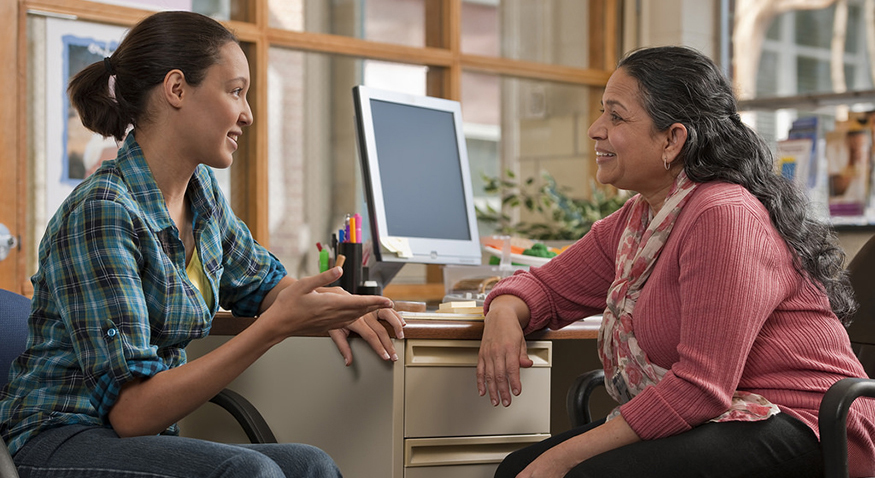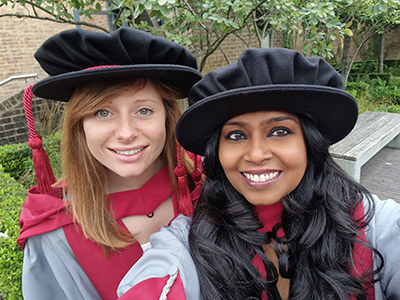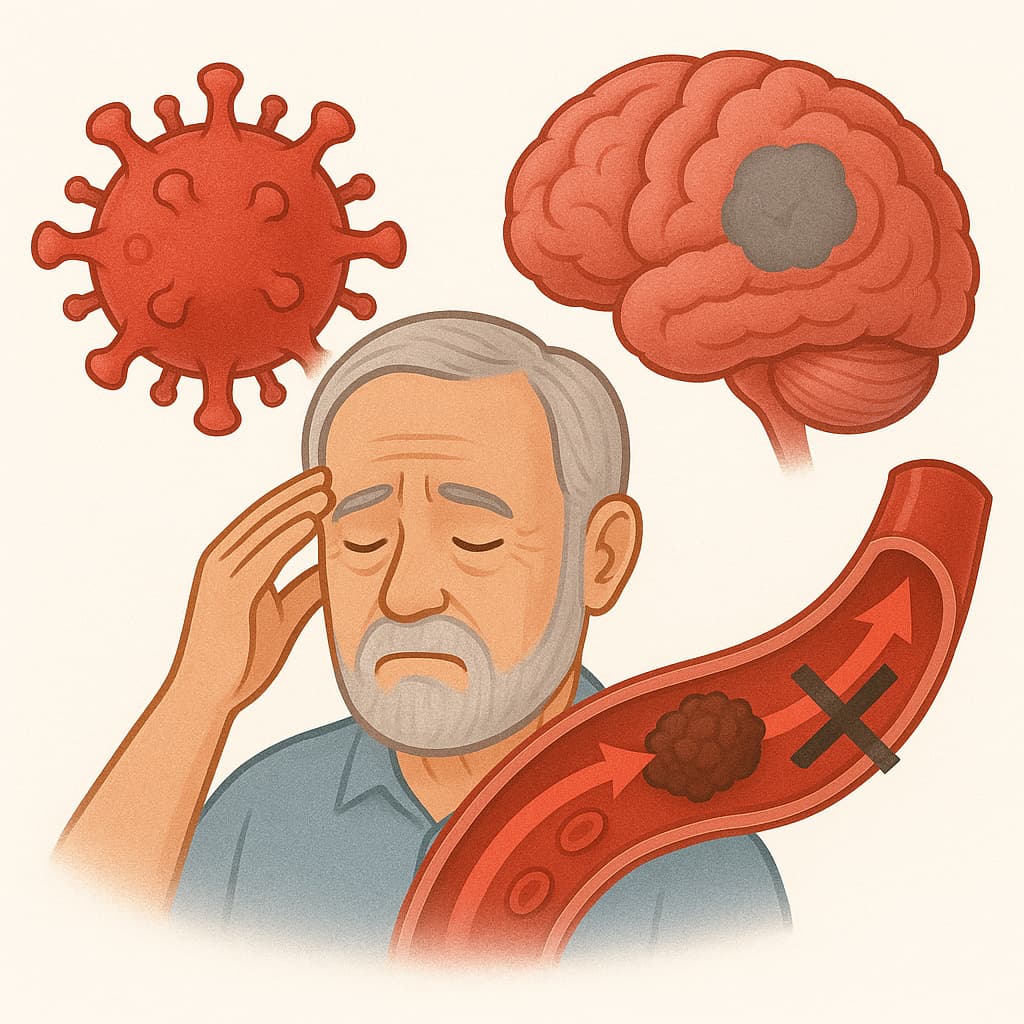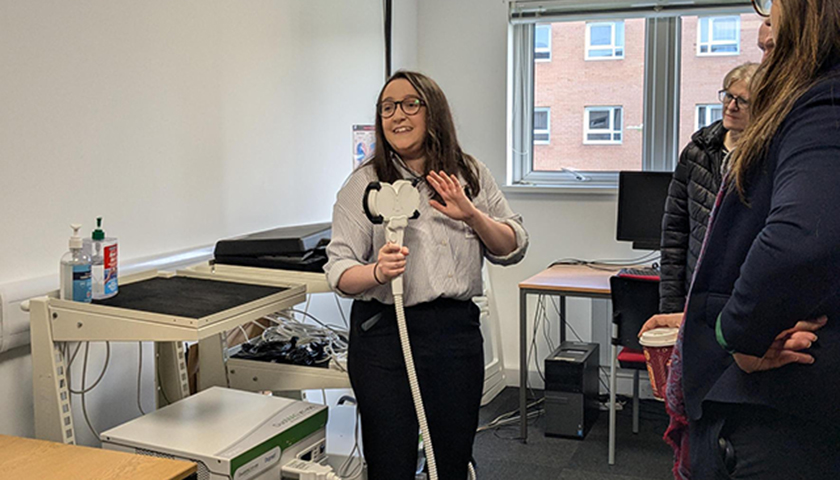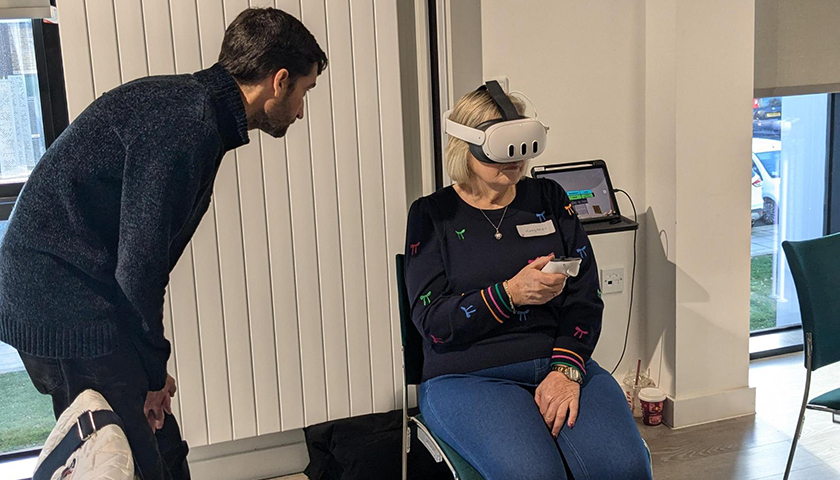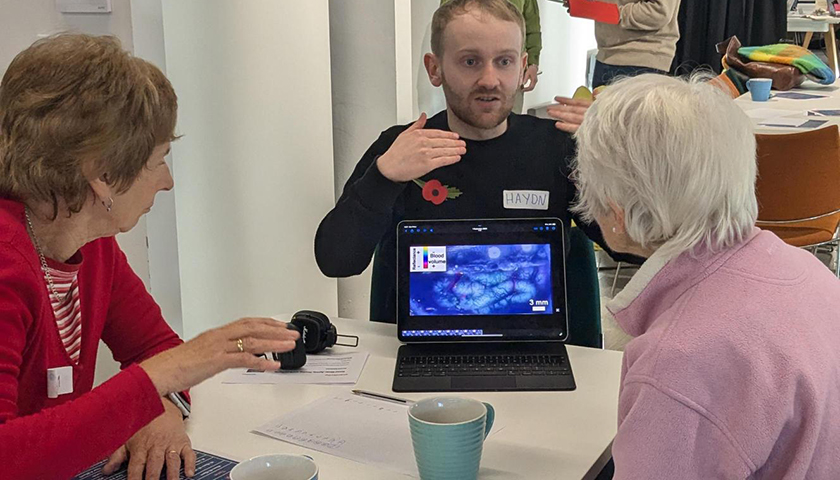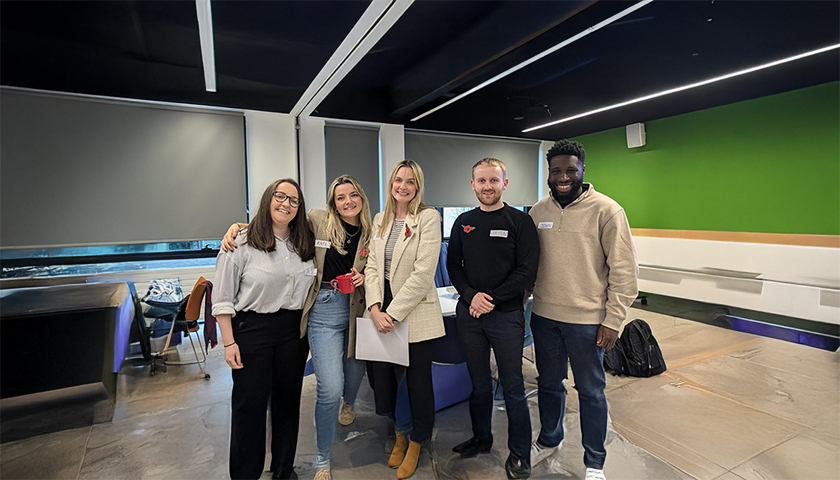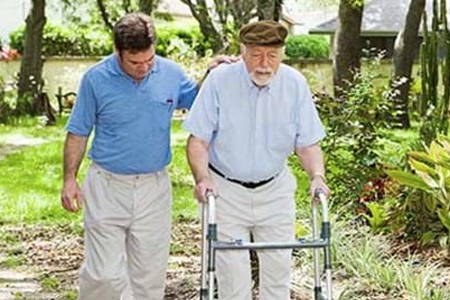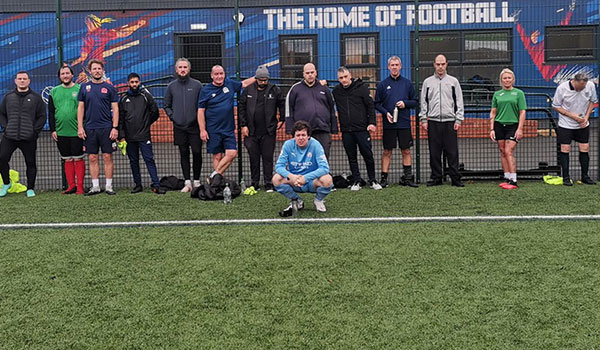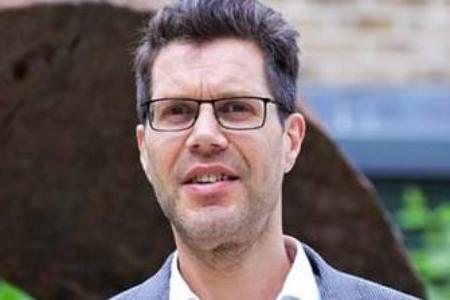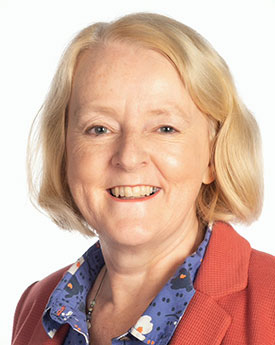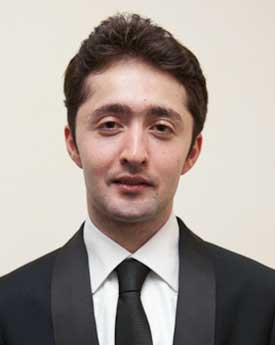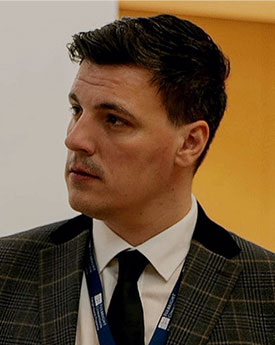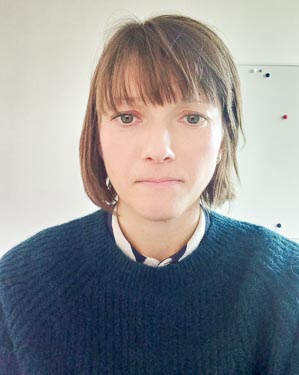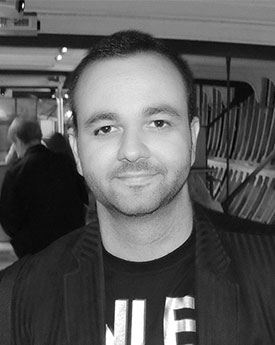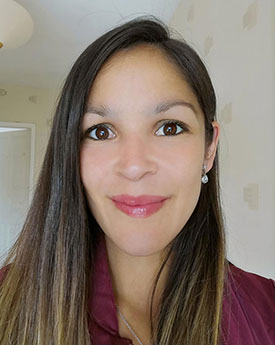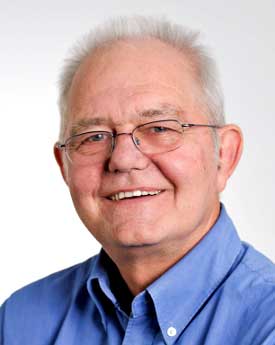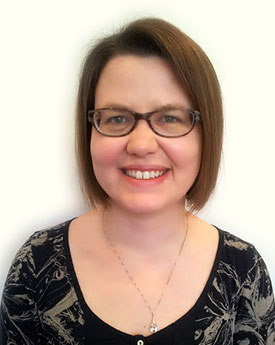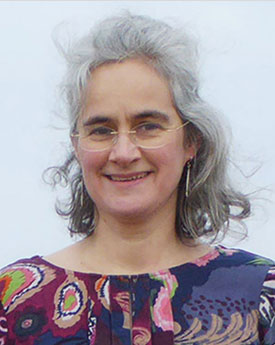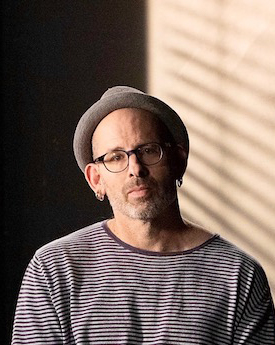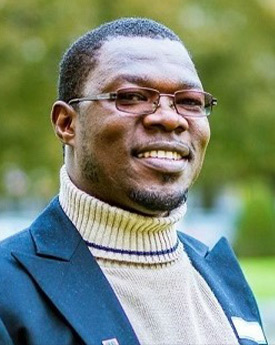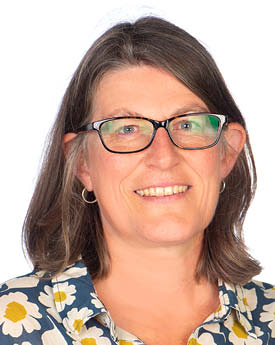How do we bring different research expertise together to solve the challenges of ageing?
The case of the Cognitive Frailty Interdisciplinary Network
Cognitive Frailty is now recognised as a syndrome in which older people who are physically frail (have poor muscle strength, slowed walking and often experience exhaustion and weight loss) also have impairments in certain thinking skills and concentration and maybe memory at the same time, but they don’t have dementia. People with cognitive frailty are at higher risk of developing dementia but also of becoming more dependent on support and of more serious outcomes from any new event such as an infection or fall. However, what’s important about this condition is that it is potentially reversible and a national team led by members of C4AR at Lancaster have been pulling together different scientific and social science methods to look at what interventions and treatments might be possible. This event will look at what more we can achieve when the biologists, health researchers, psychologists, neurophysiologists, social policy and public health specialists all work together and also ensure the involvement of older adults, some of whom may be living with cognitive frailty or caring for those who are.
This one-day event (previously called the “Town and Gown”) showcased work from Lancaster University’s Centre for Ageing Research researchers and external partners, and presented a series of studies examining issues relating to underlying mechanisms and predictors, experiences and interventions for cognitive frailty.
Recorded Talks
What do we mean by Cognitive Frailty and why is it important? Carol Holland (Lancaster University) Watch the talk.
Relationship between religious practices, ethnicity and cognitive frailty. Sanda Ismail (Lancaster University) Watch the talk.
Cognitive Frailty among middle-aged and older women and men in India: findings from a longitudinal ageing study in India. Sayani Das (IIHMR New Delhi) Watch the talk.
Importance of fruit and veg for your memory. Iru Dias (Aston University) Watch the talk.
The role of model organism research and the potential for Cognitive Frailty models. Sue Broughton (Lancaster University) Watch the talk.
Population health, the environment and Cognitive Frailty. Sally Fowler-Davis (Anglia Ruskin University) Watch the talk.
Age-related hearing loss as a risk factor for cognitive decline Helen Nuttall (Lancaster University) Watch the talk.
VOICE – Citizen involvement in research and advisory boards. Alex Mitchell (Newcastle University and National Innovation Centre in Ageing) Watch the talk.
Cognitive Frailty: conceptual understanding and risk factors. Dorina Cadar (Brighton and Sussex Medical School) Watch the talk.
"I say to my wife, come on... just have a smile, I think it's a big thing": The protective value of psychological and social factors on ageing with coexistent frailty and cognitive impairments. Alison Ellwood (Bradford University) Watch the talk.
Bringing it all together: scoping out what different disciplines are researching. What’s missing? Carol Holland (Lancaster University) Watch the talk.
The 12 Days of Christmas: Santa’s Brain Health edition. Alan Gow (Heriot Watt University, Edinburgh) Watch the talk.
C4AR Seminar Series 2020-23
30 June 2023
PhD Showcase event
Dr Emma Putland - Picturing dementia: How might images of dementia contribute to or challenge dementia stigma?
Dr Megan Readman - Is hearing loss a risk factor for Idiopathic Parkinson’s disease? A English Longitudinal Study of Ageing (ELSA) analysis.
31 March 2023
'Research into the Older Workforce'
09 December 2022
'Patterns of alcohol consumption in older adults – evidence from the English Longitudinal Study of Ageing'
Watch the Patterns of alcohol consumption in older adults – evidence from the English Longitudinal Study of Ageing video recording
28 October 2022
'COVID-19 and care homes - the case of England', Dr Danni Collingridge Moore, research Fellow, Lancaster University
Watch the COVID-19 and Care homes - the case of England video recording
01 July 2022
C4AR PhD Showcase Seminar - 2022
Watch the C4AR PhD Showcase Seminar - 2022 video recording
28 January 2022
'Equitable Access to Research: A Deep Dive into Engaging Seldom Heard Voices in Dementia Risk Reduction Research' by Dr Laura Booi, Leeds Beckett University
Watch the Equitable Access to Research: A Deep Dive into Engaging Seldom Heard Voices in Dementia Risk Reduction Research video recording
10 December 2021
'Non-Believing Older Adults' Approaches to End of Life' by Dr Joanna Malone, University of Kent
Watch the Non-Believing Older Adults' Approaches to End of Life video recording
12 November 2021
'Healthy Longevity, our best opportunity' by Professor Lynne Corner, Director, VOICE
Watch the Healthy Longevity, our best opportunity video recording
29 October 2021
'Facilitating multi-modal cross-Cohort research in cognitive health and dementia' by Dr Sarah Bauermeister, University of Oxford
Watch the Facilitating multi-modal cross-Cohort research in cognitive health and dementia video recording
28 May 2021
Lancaster University PhD Showcase Seminar
Watch the Lancaster University PhD Showcase Seminar - 2021 video recording
26 March 2021
'Handle with care' by Dr Michael Tan from Lab4Living, Sheffield Hallam University
Watch the Handle with care video recording
29 January 2021
Applying co-design methods to development and testing of a novel intervention to support mobility and address health inequities in older adults: The EMBOLDEN Study by Dr Rebecca Ganann and Dr Sarah Neil-Sztramko from McMaster University, Canada
Watch the EMBOLDEN Study video recording
27 November 2020
'Exercise and nutrition interventions targeting skeletal muscle mass and function in older adults' by Dr Brendan Egan from Dublin City University
Watch the Exercise and nutrition interventions targeting skeletal muscle mass and function in older adults video recording
Centre for Ageing Research 'Town & Gown' event - Maintaining Health in Older Age, 1st October 2020
We are all aware of the familiar NHS and Government advice on a range of aspects of our health-related behaviour, such as how often we do any exercise, taking care to have a healthy diet, giving up smoking or keeping a healthy weight, but what long term impacts do these behaviours have and on what? What are the impacts on some of the later life negatives we’d all like to avoid, like cognitive decline and dementia, heart disease or frailty? And what are the impacts even in the context of such long-term health diagnoses?
We are also aware that our psychological health and other dimensions of wellbeing, such as the social support we have or the environment we live in are also important components of our resilience as we get older too.
This one day event showcased work from Lancaster University’s Centre for Ageing researchers and partners, touching on themes such improving your speed of recovery after an illness or surgery, long term impacts of health behaviours on later life risk of dementia, stories of transitions in physical activity throughout life, the role of personal resilience in maintaining wellbeing in the face of health problems, different ways of thinking about and planning to make positive changes to our lifestyle and resilience. And of course, as if you haven’t heard enough about it, we will be telling you about some early findings of our work on wellbeing impacts of COVID-19 self-isolation and social distancing on older people.
The event was recorded and can be viewed at the links below:
Presenters and titles included:
Asan Akpan.(Liverpool University Hospitals NHS FT): What really matters to older people in terms of research on maintaining health
Christine Milligan (Lancaster University): Wilderness and Wellbeing
Fiona Eccles, (Lancaster University): Impacts of lockdown on wellbeing for people with Parkinson’s
Jennifer Logue, (Lancaster University): Intentional weight loss in later life – is it a good thing?
Meghánn Ward, (Lancaster University): Maintaining Wellbeing through the Arts for People Living with Dementia
Sandra Varey, Ian Garner, and Carol Holland, (Lancaster University): Experiences and impacts of the Covid-19 outbreak for older adults
Theo Bampouras (Lancaster University): If you don't use it, you lose it: the secret benefits of physical activity!
If you would like to be sent any of the above presentations, contact c4ar@lancaster.ac.uk
Centre for Ageing Research 'Town & Gown Event' - Lancaster Town Hall, 19th September 2019
This one day event showcased work from Lancaster University’s Centre for Ageing researchers and partners, touching on themes such as digital innovation in new and existing housing, alternative housing choices, neighbourhoods that are supportive for people with dementia, out of home mobility, active ageing and staying connected, and intergenerational projects. The event featured talks from researchers and linked non-academic organisations who are using new community models and technologies to support healthy ageing.
Most of the presentations mentioned below are available in our archives. If you would like a copy of a specific talk, email c4ar@lancaster.ac.uk who will make this available to you in PDF format, subject to author permission and availability.
Robin Kearns, (University of Auckland): "Older residents' experiences of islandness, identity and precarity: Ageing on Waiheke Island
Mark Levine, (Lancaster University), Blaine Price, (Open University): STRETCH: SocioTechnical Resilience for Enhancing Targeted Community Healthcare
Niall Hayes, (Lancaster University): Accessible digital services for older adults
Melissa Fernandez Arrigoitia, (Lancaster University): The benefits of mutuality
Janet Ross-Mills:Experiences from Co-housing
Caroline Swarbrick, (Lancaster University): Open Doors: Stories from a very different Salford
Shirley Hall, ExtraCare villages; Intergenerational activities in retirement housing
Carol Holland, (Lancaster University): Health, Wellbeing and Resilience in Retirement Villages
Sarah Campbell, (University of Manchester), Andrew Clark, (University of Salford): Why do neighbourhoods matter to people living with dementia and their families?
Joe Oldman, (Age UK): Older people's housing: key policy issues
Centre for Ageing Research ‘Town and Gown Event’ – Lancaster Town Hall, 27 September 2018
We all see amazing examples of technology designed to support our health featured on news programmes or documentaries, and we are aware that developments in such technologies are happening very fast. But what impact could they have on us as individuals, how do we know what’s useful and what we could do without, and more importantly, how could we get hold of the best of it and use it to support our ability to stay well and independent into older age?
At Lancaster University, we work closely with external partners researching into a range of topics– from detecting changes in your everyday movements that could mean you are at risk of a fall, to helping you monitor your memory or fitness, to supporting care and companionship and to enabling links to your family, friends or GP.
Most of the presentations mentioned below are available in our archives. If you would like a copy of a specific talk, email c4ar@lancaster.ac.uk who will make this available to you in PDF format, subject to author permission and availability.
Theresa Atkinson, PhD Student (ESRC), Lancaster University: Falls, Calls and Telecare
Dr Christopher Bull (Lancaster University): Loneliness, Social Isolation, and Digital Inclusion in the Mobile Age
Trevor J. Crawford (C4AR): Are Saccadic Eye Movements a potential biological marker for Alzheimer’s disease
Janet Davies, Lancashire Care Foundation Trust & Professor Christine Milligan, Lancaster University: LCIA Test Bed: using health technology to improve the effectiveness and cost effectiveness of care for older people with long-term conditions living at home
Dr Holly Gwyther: The ‘digital divide’: facilitators and barriers of healthcare technology use by older adults
Chris Nugent (Ulster University):Design, development and evaluation of Digital Health Technologies
Jennifer O’Donnell (Aston University), Carol Holland (Lancaster University), Michael Spellman (The ExtraCare Charitable Trust), Shirley Hall (The ExtraCare Charitable Trust): Designing an online tool for assessing frailty and resilience
Michelle G Swainson PhD Student: Making Sense of Physical Activity Apps: Steps or Minutes?
Scott Richards: Re-training perception of speech in noise using online training
Centre for Ageing Research 'Town and Gown Event' - Lancaster Town Hall, 7 September 2017
The theme of this year's Town and Gown event was 'Dementia and the Imagination: Arts and Design for Health'. Organised and run by Lancaster University Centre for Ageing Research, it was designed to introduce delegates to some of the most cutting edge research and practice, drawing on knowledge and expertise from the worlds of art and design. From music and theatre to participatory art and design, this event showcased the work of researchers from Lancaster University together with that of their collaborators with backgrounds in health, academia and the voluntary and community sector.
Videos for each of the presentations can be viewed below. Most of the accompanying presentations are available in our archives. If you would like a copy of a specific talk, contact c4ar@lancaster.ac.uk, who will make this available to you in PDF format, subject to author permission and availability.
Christine Milligan, An introduction to the event
Watch the C4AR Town and Gown 2017 video 'An introduction to the event'
J Keady and H Pusey, Participatory arts and dementia: an overview from Manchester
Watch the C4AR Town and Gown 2017 video 'Participatory arts and dementia: an overview from Manchester'
Paul Rodgers, Disrupting Dementia by Design
Watch the C4AR Town and Gown 2017 video 'Disrupting Dementia by Design'
Emmanuel Tsekleves, Ageing Playfully
Watch the C4AR Town and Gown 2017 video 'Ageing Playfully'
Robyn Dowlen, Being 'in the moment' with music
Watch the C4AR Town and Gown 2017 video 'Being "in the moment" with music'
Euan Winton, How can design empower people living with dementia to transform local community
Watch the C4AR Town and Gown 2017 video 'How can design empower people living with dementia to transform local community'
Pam Schweitzer, Remembering Yesterday, Caring Today: Reminiscence in Dementia Care
Watch the C4AR Town and Gown 2017 video 'Remembering Yesterday, Caring Today: Reminiscence in Dementia Care'
Christine Milligan and Gil Graystone, A Life More Ordinary: Developing dementia friendly spaces through the arts
Watch the C4AR Town and Gown 2017 video 'A Life More Ordinary: Developing dementia friendly spaces through the arts'
Garuth Chalfont, What is Art?
Watch the C4AR Town and Gown 2017 video 'What is Art?'
Daniel Carey, How dementia carers interact with different services
Watch the C4AR Town and Gown 2017 video 'How dementia carers interact with different services'
Mary Elliott, Manage programme for people living with dementia
Watch the C4AR Town and Gown 2017 video 'Manage programme for people living with dementia'
Jimmy O'Donnell, The Power of Sensory Reminiscence - unlocking creativity within each person
Watch the C4AR Town and Gown 2017 video 'The Power of Sensory Reminiscence - unlocking creativity within each person'
C4AR Dementia Futures 'Town and Gown' Event - 18th September 2015
In September 2015, the Centre for Ageing Research held its annual Town and Gown event in Lancaster Town Hall. The focus of the event was on Dementia Futures, bringing together academics from the university, clinicians and practitioners, city councillors and members of the public to hear about some of the latest developments in dementia research and practice. This year saw the addition of a room demonstrating a range of interactive activities used in research that proved a huge success with those attending.
View the YouTube video introducing the C4AR Town and Gown 2015 event
Health and Housing Conference - 16 December 2019
The quality of housing is a key determinant of health and wellbeing, with factors like cold and damp, physical accessibility, and location in relation to community support and out-of-home needs all having an impact.
This conference brought together a range of stakeholders including housing associations, architects, local government, integrated care NHS groups, 3rd Sector providers and academic researchers to present: best practice case studies; evaluations of new models; a range of new ideas and choices for housing, for example, in later life, in the context of health issues, for community living or for sustainability.
The first conference aim was to share information at the cutting edge of housing and health development as the UK seeks to build homes and provide services that will support the health and wellbeing of the population into the future. The second aim was to use the day, and what we all learned from each other, to develop a regional Housing for Health Strategy.
Most of the presentations mentioned below are available in our archives. If you would like a copy of a specific talk, email c4ar@lancaster.ac.uk who will make this available to you in PDF format, subject to author permission and availability.
Martin Cutbill: Combining digital technologies and human contact to improve outcomes for housing
Rob Halhead COO: Delivering Remote Care
Dominic Harrison: A Public Health Perspective on Health, Housing & Place Based Prevention
Professor Carol Holland: Health, Wellbeing and Resilience in Retirement Villages
Lois Lane: Strong Foundations: how the housing sector can support public health
Christine Milligan: Can domotics and health technologies enable older people with long-term conditions to stay in their own homes for longer? A view from the LCIA Test Bed
Dr Tom Moore: : The potential contribution of community-led housing
Jeremy Porteus: Crossing the housing and health divide
Michael Spellman: Dementia support in retirement housing
Talib Yaseen O.B.E: Housing and Health Services Integrated Systems Perspective
The Calico Group: Bringing health and housing together through personalisation




